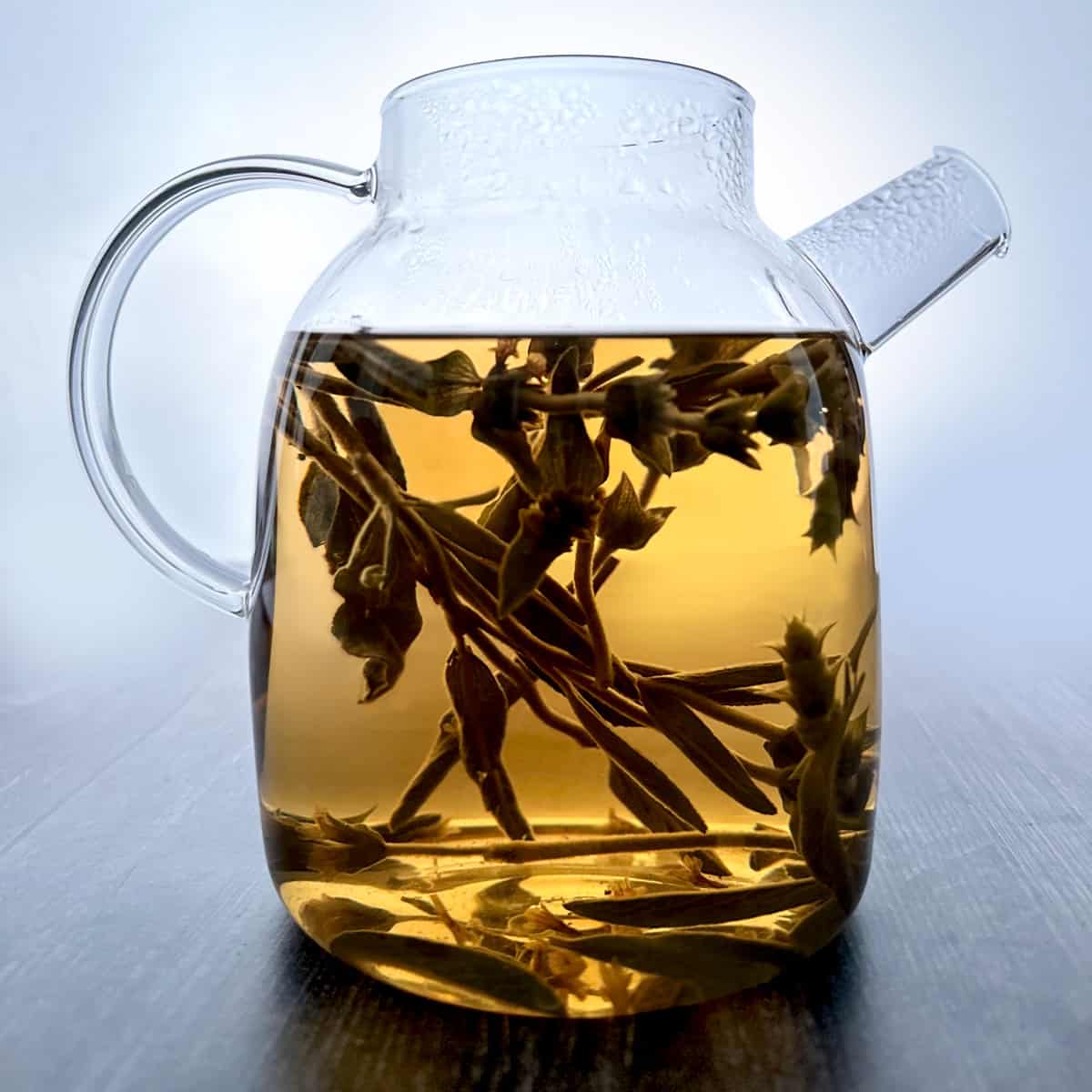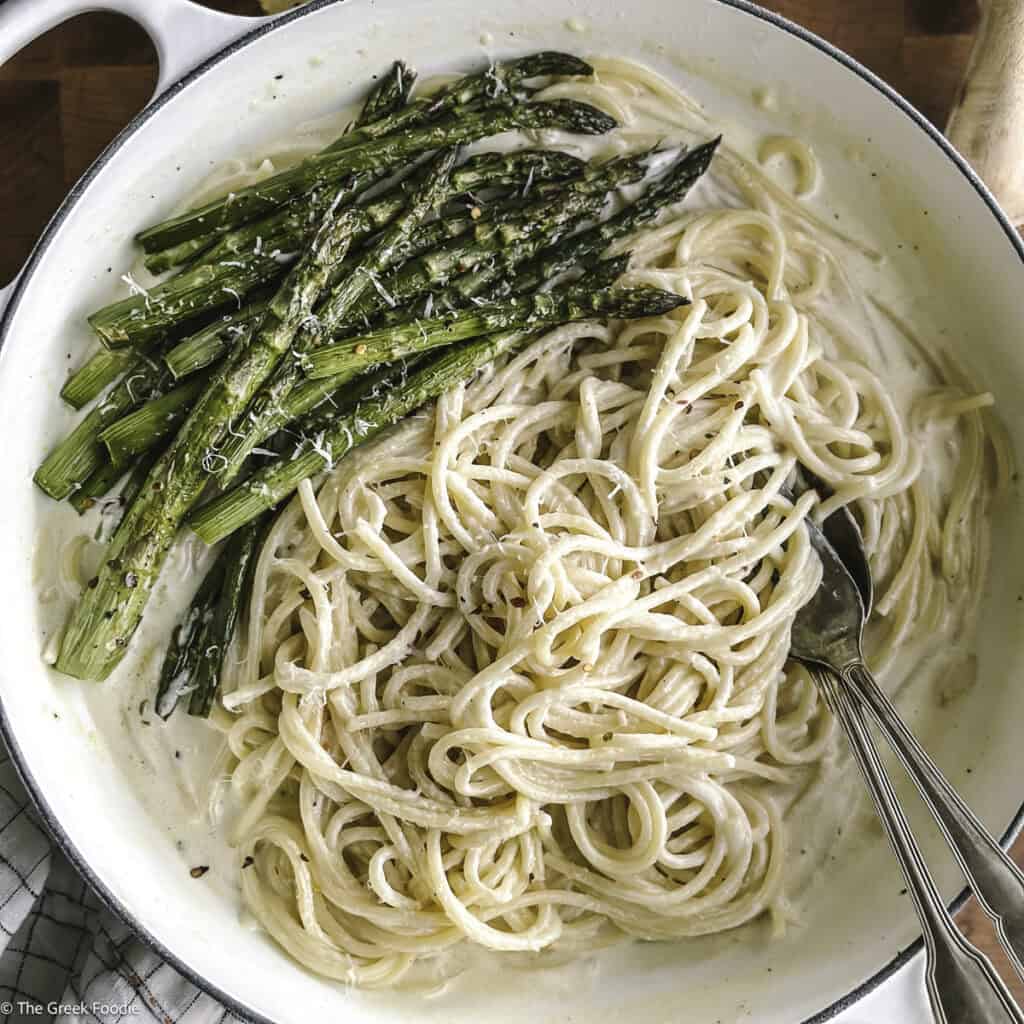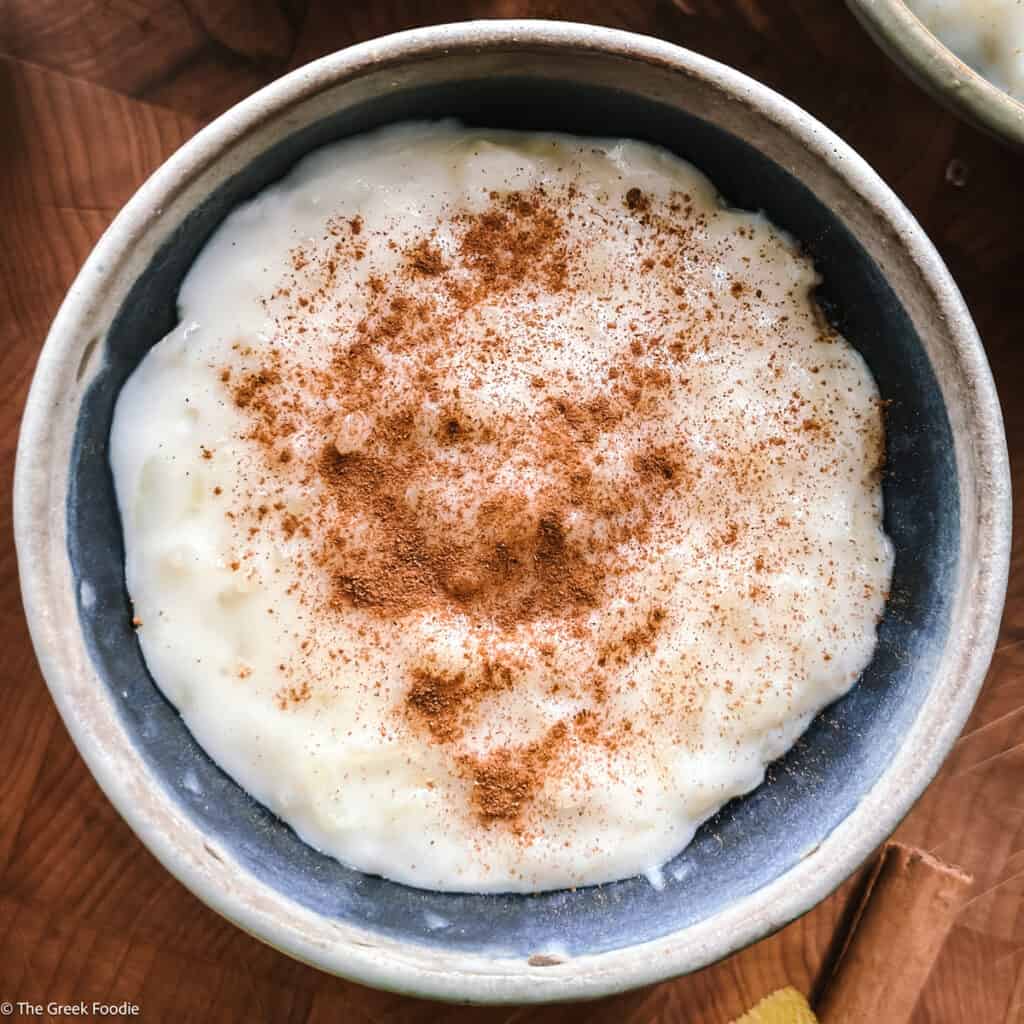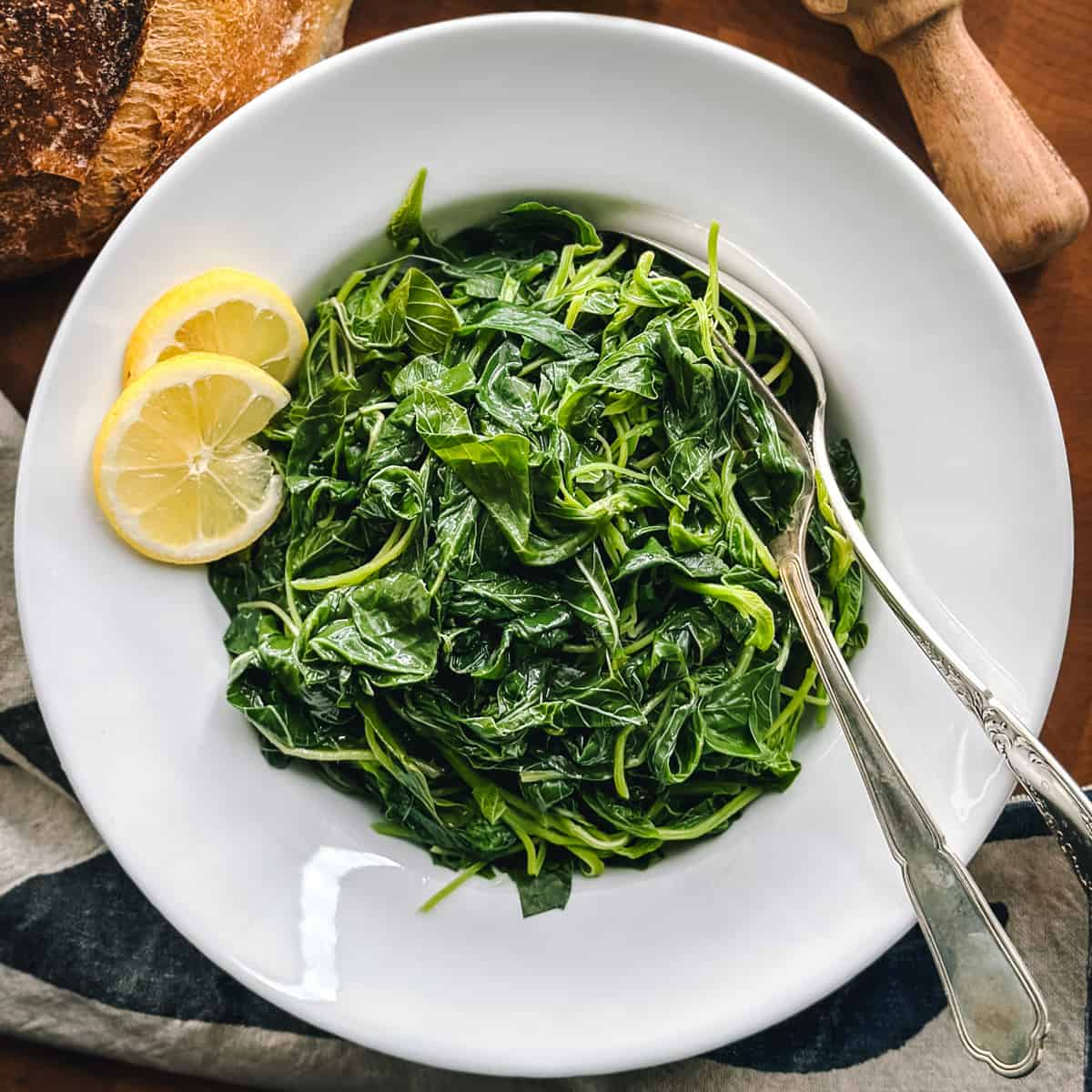Greek mountain tea is a particularly beloved hot herbal drink, especially in the winter. It is the most famous Greek herb, and it is present in almost any home. The tea has remarkable nutritional value contributing to the body’s hydration and well-being.
Learn helpful information and history about this excellent herbal tea and how to make and enjoy it.
If you love this Greek mountain tea, you will also love this Ladolemono-olive oil & lemon dressing, how to make Greek yogurt or how to make Greek coffee!
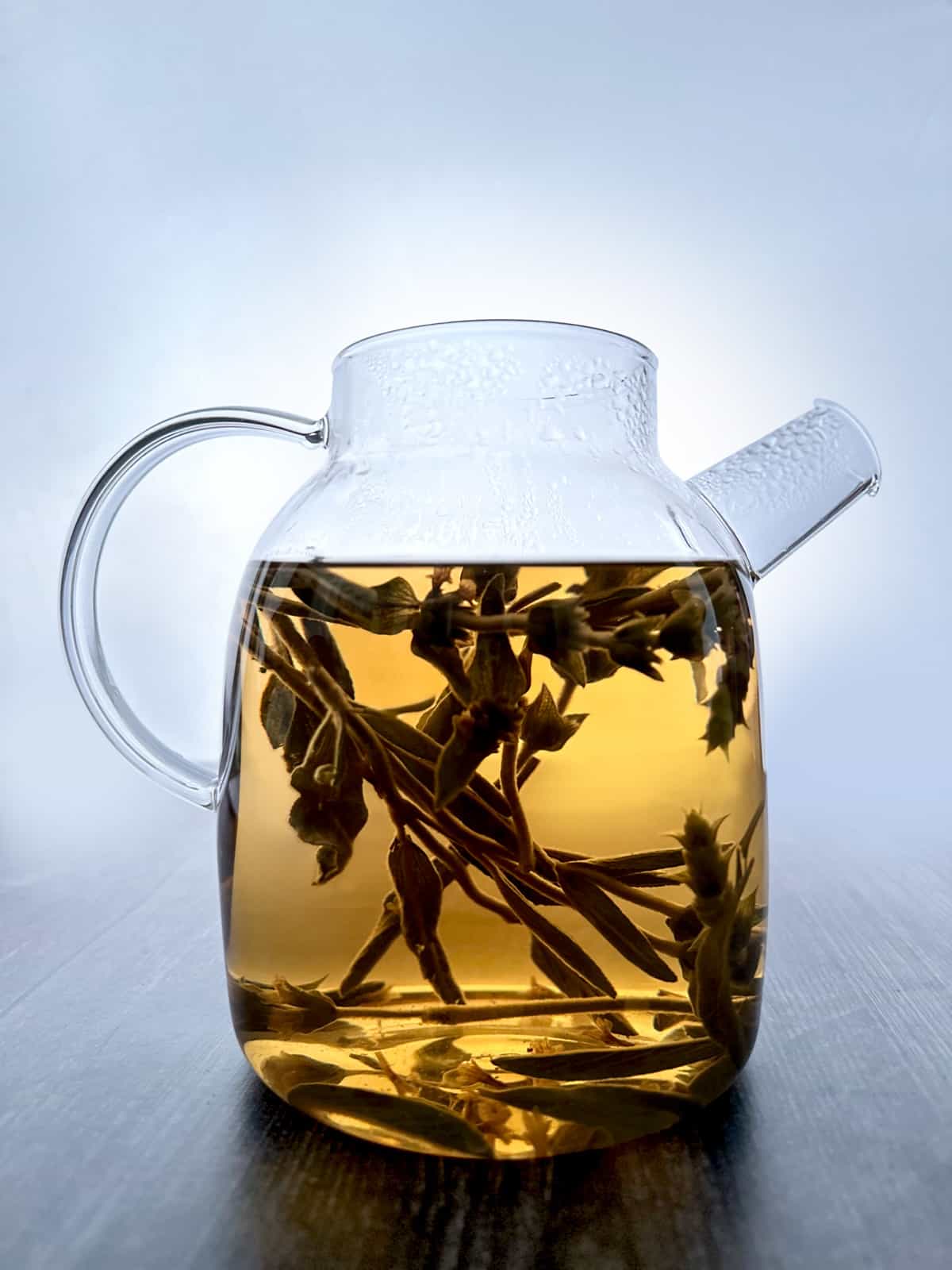
What is Greek mountain tea
Mountain tea is a particularly beloved herb, popular in all Mediterranean countries, especially in the winter.
Its scientific name is Sideritis, and more than 100 species have been recorded, of which 17 grow exclusively in Greece. Some species are listed below:
Sideritis Perfoliata from Mount Athos, Sideritis Clandestina from Mount Taygetos, Sideritis Syriaca (malotira) from the mountains of the island of Crete, Sideritis Skardika from Mount Olympus, Sideritis Euboea from the Evia region in central Greece, etc. All species of this tea are heat and drought-tolerant and grow between rocky mountain slopes.
The Greek mountain tea in recent years has been the subject of intense study by scientists thanks to its various beneficial properties. Traditionally, the tea is preferred for its benefit in colds, respiratory problems, indigestion, and other gastrointestinal disorders.

Benefits of Greek mountain tea
The scientific studies are numerous and constantly increasing in order to examine the beneficial effect of its components on the human body. More specifically, they found it is beneficial for:
- Osteoporosis
- Alzheimer
- Hypertension
- Digestion
- Antioxidant, anti-inflammatory, anxiolytic action
- Antimicrobial
Other actions
Anti-anemic (contains iron), anti-aging (due to its antioxidant components, it is a component of care products such as anti-aging creams, hair masks, etc.), antispasmodic, diuretic, helps with good kidney function and acts preventively against the appearance of cataracts.
In addition, mountain tea strengthens the immune system and appears to be effective in treating colds, nasal congestion, respiratory problems, and persistent coughs.
Interesting facts about mountain tea
- Mountain tea, or siderite, is already known since the time of Dioscorides and Hippocrates, who recommended it as a tonic herb and favored it for its healing properties, ideal for treating wounds from iron objects in battles (swords and arrows), which he also owes his name. For other contemporaries of Hippocrates, the name referred to the plant’s stems, which had sepals that resembled the tip of a spear.
- Rich in iron and copper, mountain tea remains the most popular and beloved Greek herb.
- Classic typical tea or black tea has nothing to do with mountain tea. Black tea comes from the leaves of the Camelia Sinensis plant and contains caffeine and different polyphenols, while the biological properties attributed to it differ significantly.
- In recent years, the great demand for the plant has substantially threatened its disappearance. For this reason, efforts to promote crops are particularly important to protect native species.
- Analyses by Greek researchers on Sideritis plants showed they contain many essential oils with an antimicrobial effect (against mainly Gram+ microbes but also a specific series of the fungus Candida Albicans). Sideritis Euboea from the Evia region showed activity against specific microbes, similar to ampicillin and amikacin antibiotics.
Precautions – Side effects
- Mountain tea does not contain caffeine, so it can be consumed sufficiently without fear.
- Since it does not show a stimulating effect, children can consume it reasonably.
- It has no known side effects.
Sources
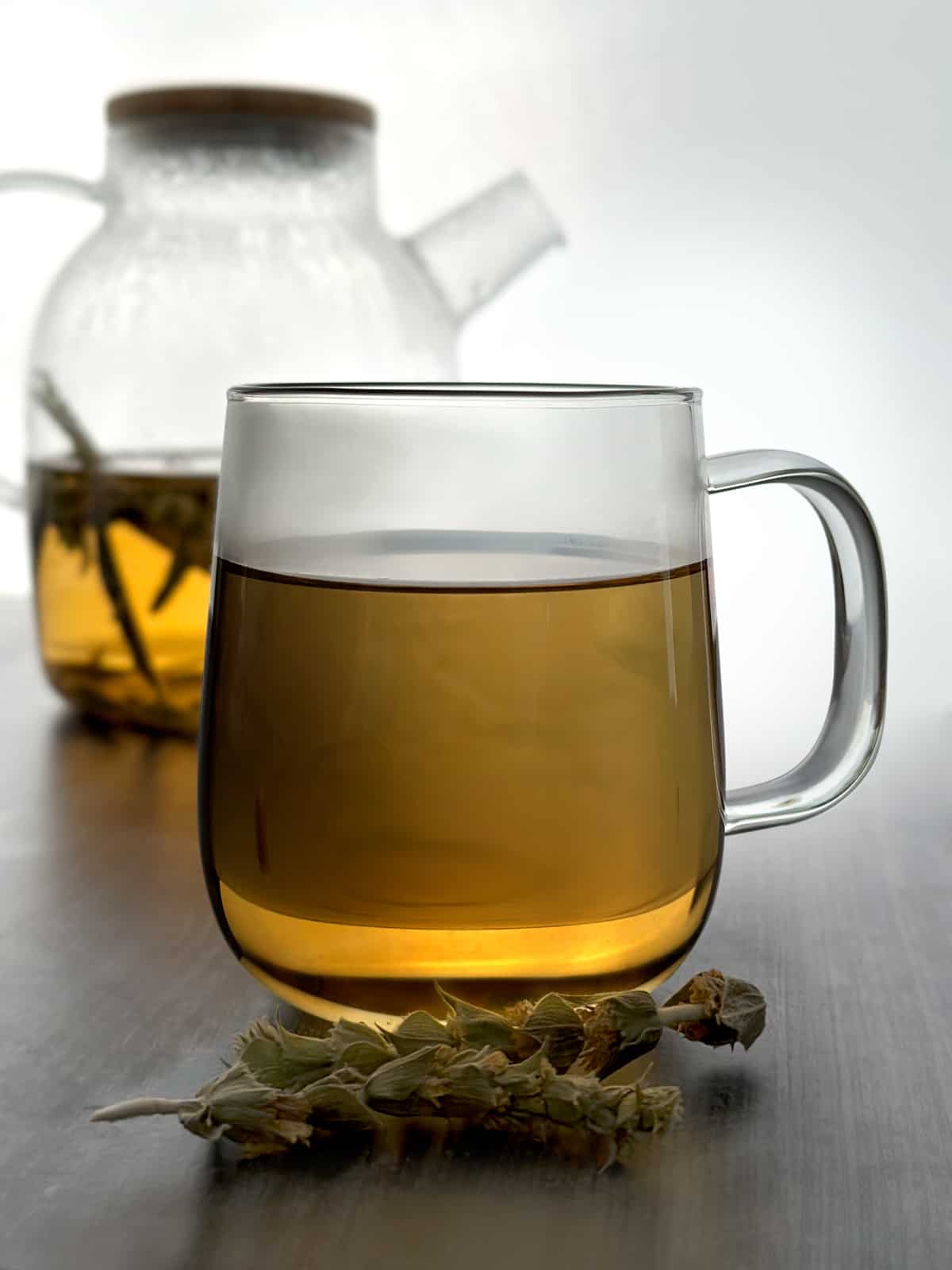
How to make Greek mountain tea
Quick beverage
Boil water. When the boiling stops, add two sprigs of mountain tea for every cup of water. Leave it for 4 minutes, strain it, and drink it.
Infusion
Pour 2 tbsp into a cup of boiling water, a few sprigs of mountain tea, cover it, and leave it for about 10 minutes. Strain, pour into a mug, and enjoy. Add a bit of honey and a few drops of fresh lemon if you like.
As a hot or cold drink
Make an infusion of mountain tea and linden tea. Optionally add 1 tbsp honey or brown sugar. In addition to its excellent – –
taste, it will give you a wonderful and peaceful sleep if you drink it hot or cold at night, just before bed.
For a morning tonic drink
Make an infusion of mountain tea and add 2-3 saffron threads. Its wonderful aroma will invigorate you as you start your day.

Where to buy
You can find Greek mountain tea at Greek grocers, gourmet stores, and online.
- Klio. They have many medicinal-quality herbal teas, delicious rare honey, and organic olive oil.
- Dafnisandchloe. Established in 2013 in a small workshop under the Acropolis Hill of Athens. It is a culinary herb and spice company with Mediterranean ingredients of the finest quality.
- Terre D’ Olympe tea & herbs. They offer luxury teas & herbs from the land of Mount Olympus as well as beautiful glass teapots and mugs.
- Etsy. You can find many great mountain teas from Greek merchants.
- Amazon. Great variety of Greek mountain teas available.
You may also like
Check out my Greek pantry staples
Cooked this? Rate this recipe! You can also leave a comment below. I love hearing from you!
WANT TO EAT LIKE A GREEK? Subscribe to my newsletter and follow me on Facebook, Pinterest, and Instagram for the latest updates.


Greek Mountain Tea
Equipment
- teapot
- kettle
Ingredients
- 1 cup Greek mountain tea leaves Measurement is roughly a cup, not packed. Use the leaves and flowers, you can also use the small soft branches.
Instructions
- Put one cup of tea leaves and flowers in a teapot and fill it with hot water. (You can leave the leaves and flowers on the small soft branches).Let the tea steep for 2 to 7 minutes. The longer it steeps, the more intense the color and aroma.
Notes
Nutrition



